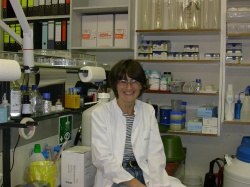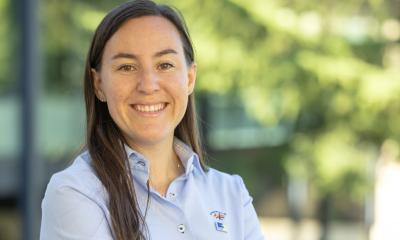Individualised cancer medication
Among updates on breast cancer diagnostics and treatments aired at the 33rd German Society for Senology meeting last year was SpheroTest, an evidence-based tool that helps select the most effective drug for each individual cancer patient.
Report: Anja Behringer

Like any other cancer – breast cancer is a highly individual disease, shaped by many factors such as age, health status or genetics. Due to the complex web of molecular pathological processes and resistance mechanisms it is very difficult to select the most effective therapy for each patient. Even official recommendations have to be taken with a pinch of salt, since they are usually based on large cohorts.
The evidence-based tool SpheroTest helps in the selection of the most effective drug for each individual cancer patient. Its manufacturer is Spherotec, a spin-off from the Grosshadern Surgery Clinic, near Munich, and a brainchild of PD Dr Barbara Mayer, a biologist, and PD Dr Ilona Funke, a surgeon.
In a late 1990s research project these two researchers wanted to learn why cancer therapies outcomes are so poor despite the availability of so many therapy options. They developed and patented a procedure that grows 3D micro-tumours from patient tissue samples – within 48 hours. Since the in-vitro tumours are almost identical to the original tumour they can be used to reliably identify the most effective cancer medication.
Providing information on the chemo-sensitivity and resistance of the individual patient’s immune system SpheroTest makes trial and error approaches obsolete. German private health insurers already reimburse the costs of these diagnostic procedures.
Any individualised cancer therapy requires the tumour to be assessed correctly. Last year, the WHO published a new classification of breast carcinoma indicating 37 invasive types that can be identified using predictive markers and that are treated either surgically or medically.
High-value advances include elastography
Thanks to new generation systems and radio frequency sonography today breast ultrasound is more than a mere complement in breast cancer diagnostics. Modern transducers can differentiate structures. High frequency transducers (10 to18 MHz) can visualise microcalcifications. Colour and Doppler ultrasound, 3D ultrasound and elastography enhance the results of conventional breast ultrasound. EFSUMB (European Federation of Societies for Ultrasound in Medicine and Biology) developed guidelines for sonoelastography that recommend using the technology as an additional tool to assess and possibly re-grade benign-appearing lesions that are stiff and consider them for biopsy. Moreover conventional ultrasound that did not yield clear results regarding benignity or malignancy of lesions can be supported by sonoelastography.
In 2012, DEGUM, the German Society for Ultrasound in Medicine, surveyed the more than 600 members of the breast ultrasound working group about elastography. Results showed 20 percent of the specialists already use sonoelastography, mainly as a complementary diagnostic tool in BI-RADS-US 3 and 4 results and for research. 85 percent of those who do not use the technology yet, are interested in elastography as an additional diagnostic instrument, particularly for earlier, more precise cancer detection.
10.11.2014





